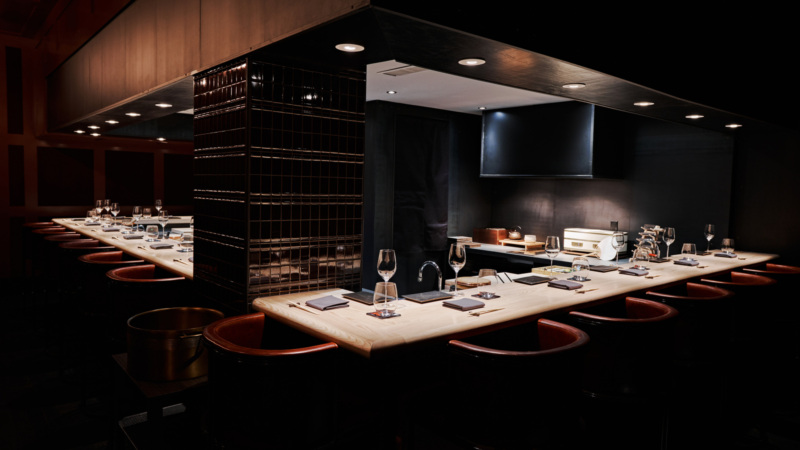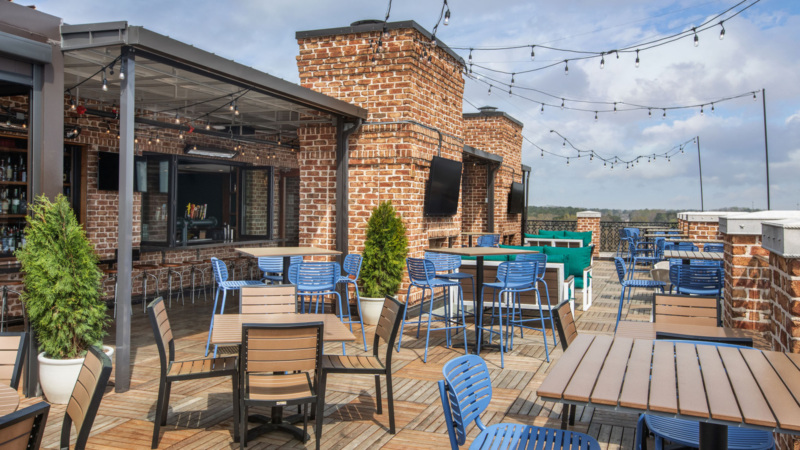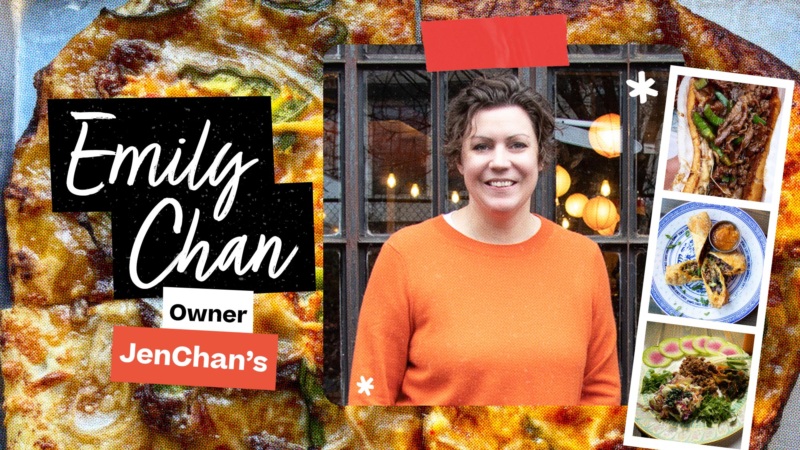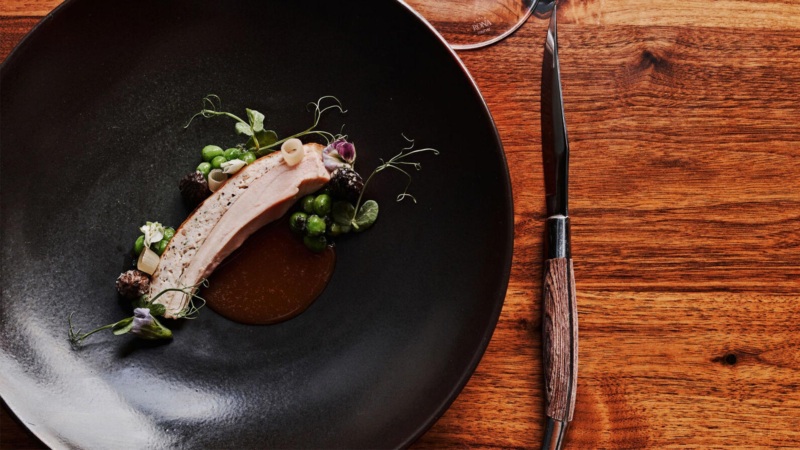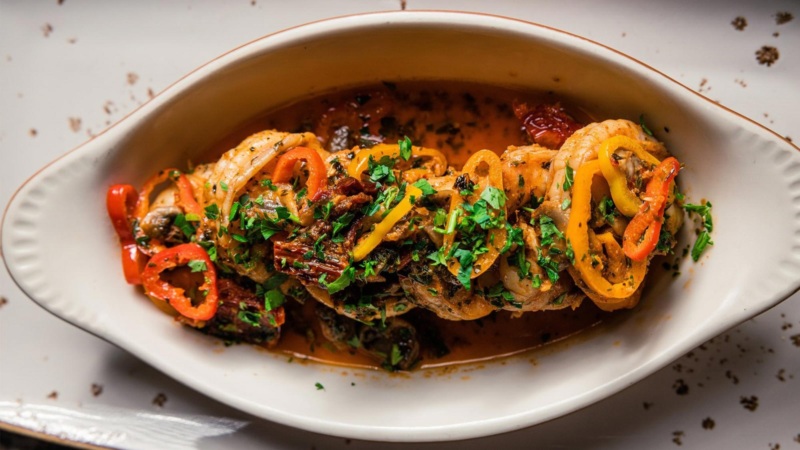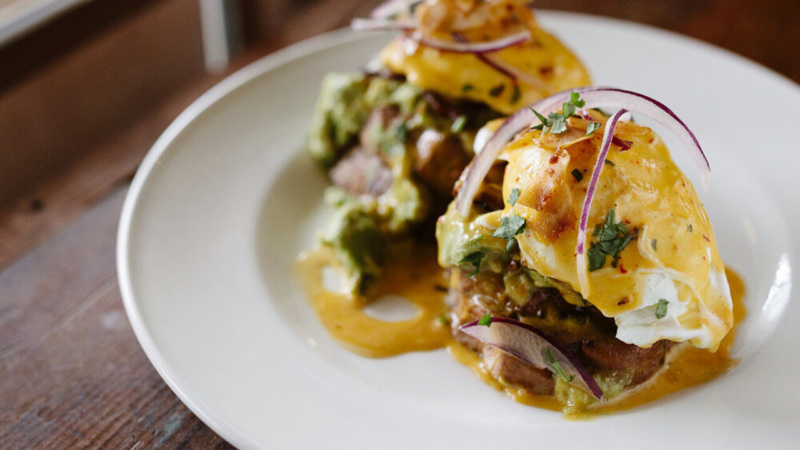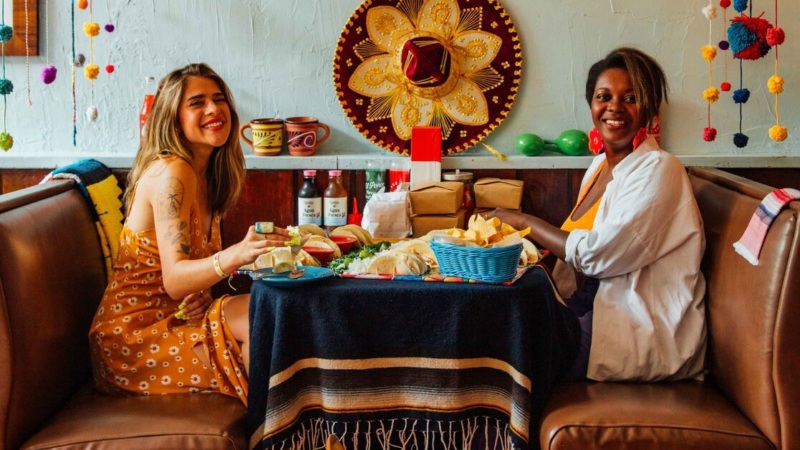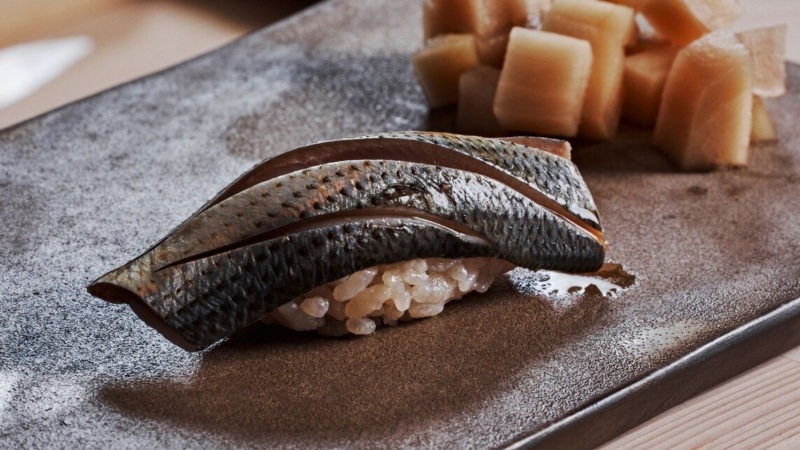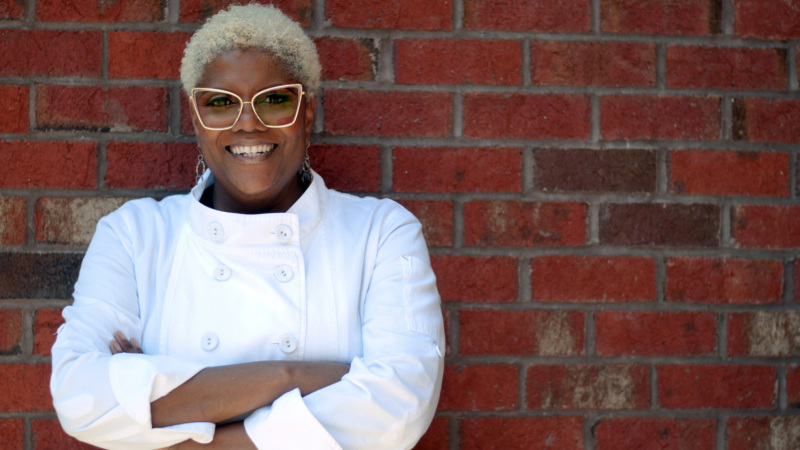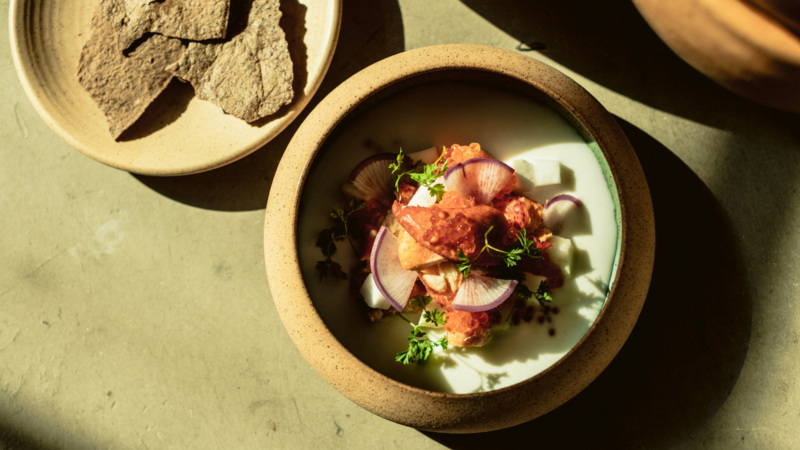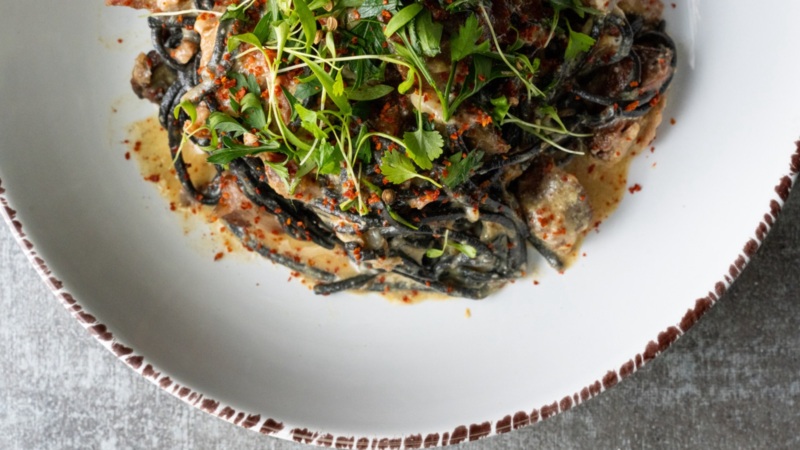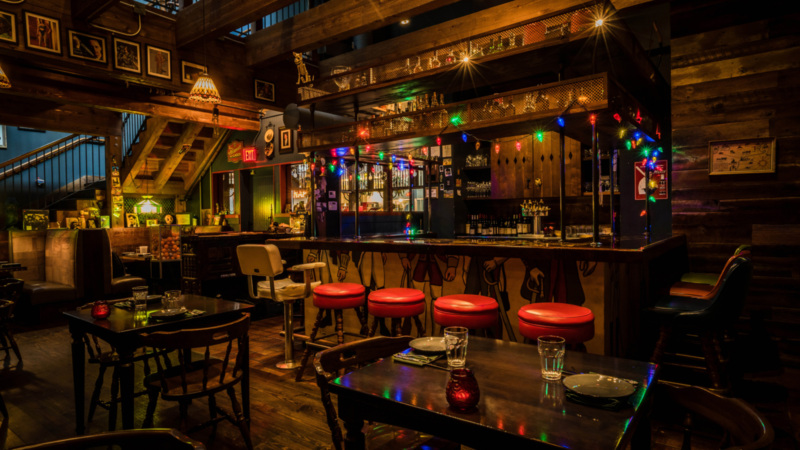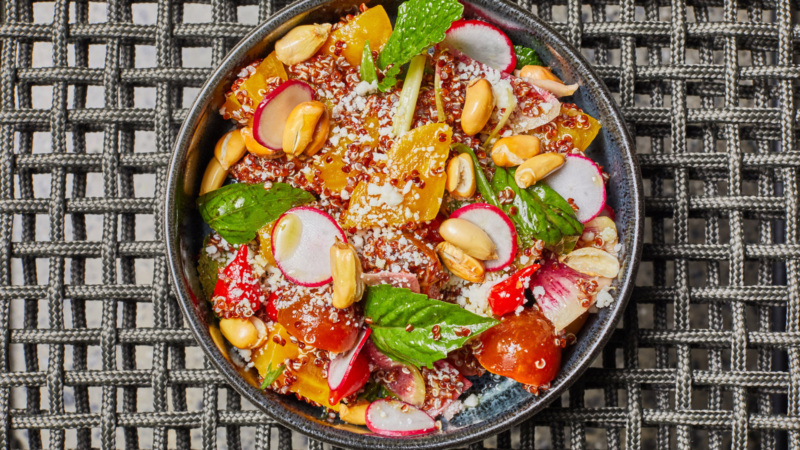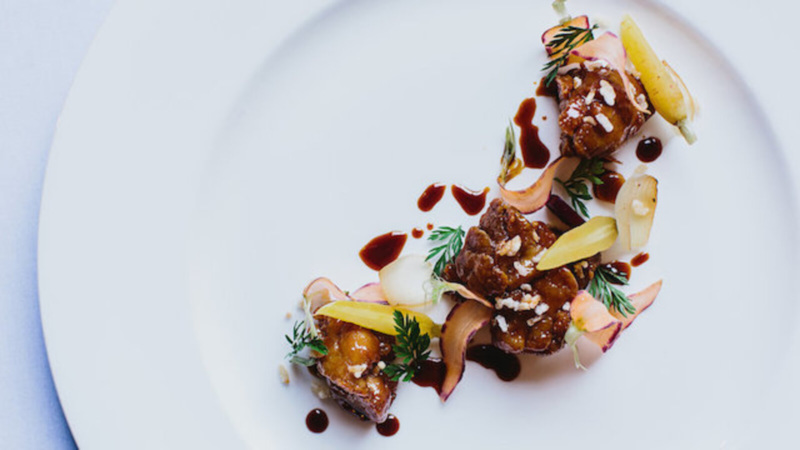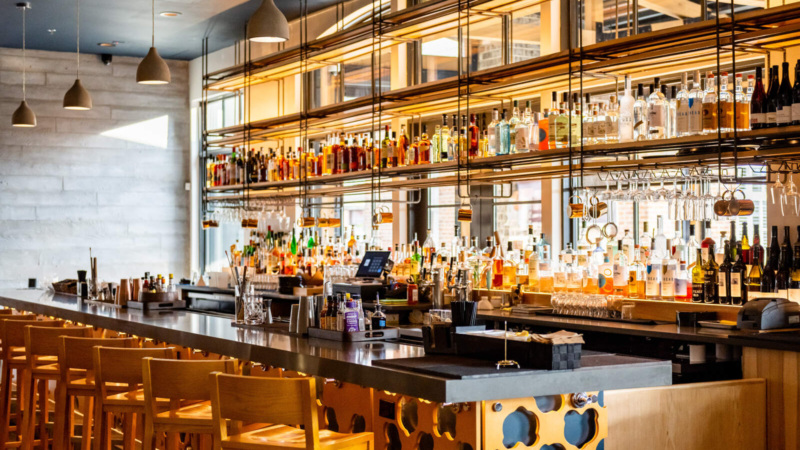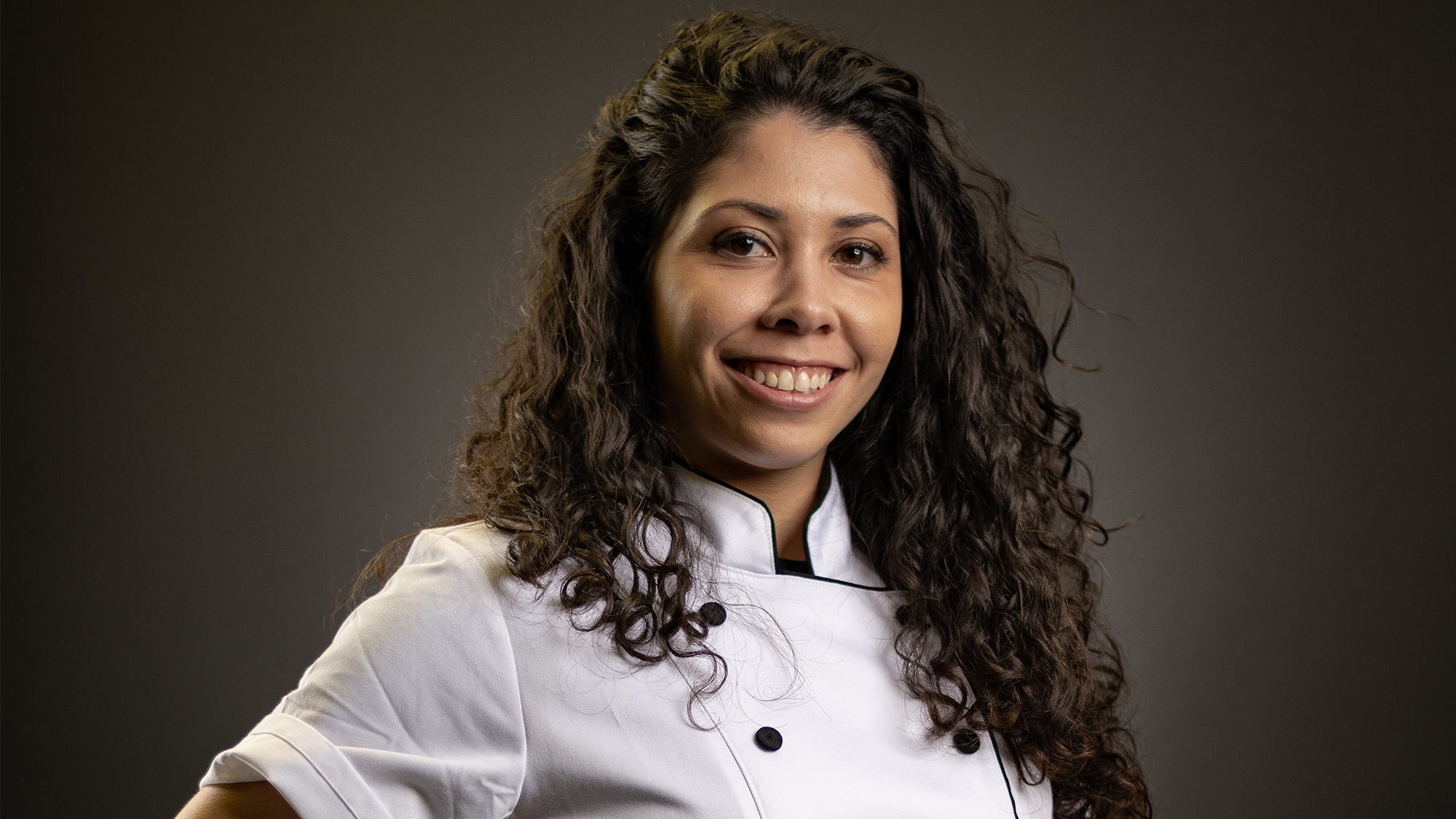
Miller Union’s Claudia Martinez Wants to Change ‘Toxic’ Restaurant Culture
Claudia Martinez took Atlanta by storm when she was just 25. In 2018, she was the young chef running the pastry program at Tiny Lou’s, a French-inspired restaurant on the ground floor of Hotel Clermont. She quickly captured the attention of diners with her playful desserts. Specifically, her “Ode to Blondie,” which became almost iconic as the stripper it was named after, featured a brown butter blondie topped with curried bananas flambé, buttermilk ice cream, and hazelnut crémeux.
Now Martinez has moved on, taking on the high-profile position of pastry chef at Miller Union in Atlanta’s West Midtown neighborhood. There, she collaborates with Steven Satterfield, the chef-owner who won a James Beard Award for Best Chef: Southeast in 2017. We caught up with Martinez to hear about her new role at Miller Union and her pop-up, Cafe Claudia, and how she’s using her growing notoriety to speak up in the kitchen.
Resy: You weren’t always certain about being a pastry chef. What was it about pastry that made you realize you wanted to pursue it?
Claudia Martinez: I think in school and growing up, pastry came off to me as very strict as far as having to follow all these rules. It’s very delicate. And it was just a scary thing to bake. It’s just very time-sensitive and everything has to be exact. And I liked cooking as far as tasting as you go, adjusting recipes as needed. But after working with Aaron [Russell] at Restaurant Eugene, and staging in Sweden, [I learned] there’s just so much more to pastry. It doesn’t have to be very sweet and heavy. It could be something more complex.
In Atlanta before, it was hard to find that. But I think now there’s enough pastry chefs that are pushing the boundaries. And I just was never a fan of heavy desserts, or pies, or cakes. I think it ruins the experience after eating a really good meal, then you get to dessert and you just feel stuffed with sugar. So it was more like [let’s do] less heavy desserts using more savory elements, making dessert more just a final goodbye of your dining experience.
Fruit is often the star of your desserts. Why?
I think it’s just the flavor. I love tropical fruits. They complement pastry items better, as far as chocolate and laminated doughs. I think fruit is already good on its own. It just has to do with where you’re getting your fruit from, and not manipulating the product too much. And then letting the fruit shine.
I think that’s why I really have enjoyed working with Steven. We’re getting a lot of local produce that I wasn’t getting at Tiny Lou’s. I think because it was a larger company, I had less control as far as who we were buying from, how much money we were spending. At Miller Union, I’m just focusing on the dessert menu. So I’m able to hone in on the produce.
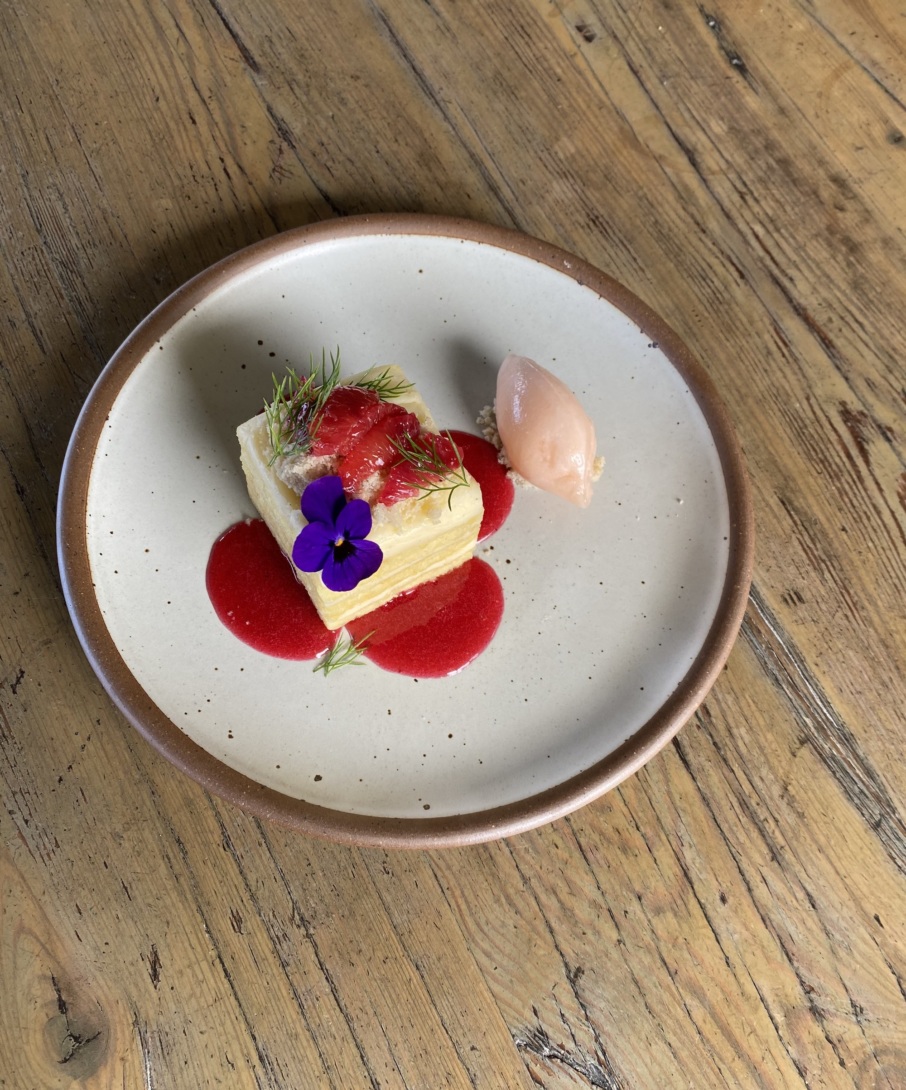
What’s it like working at Miller Union, which so quickly became an Atlanta institution?
Miller Union reminded me of Restaurant Eugene. So when I looked at the menu, I was like, okay, I have to start thinking local, light, try not to overdo it.
I think with Tiny Lou’s, the menu was easier to be playful and be out there, because it is a fun restaurant, it’s above a strip club. It has history. I can play off that. Whereas here, I think I can slow down.
I’ve been learning a lot from Steven. When I left working for a large company, and during COVID, and everything, and all the protests, I [realized that I] want to be associated with people that have the same views as me. And I think with Steven, he is one of the chefs that I know pushes for social justice, and he and Neal (McCarthy) are very vocal. I only have to talk to those two people. I don’t have to go to a chain of corporate command to be myself and speak up.
I did also want to make sure I was working for a group or a restaurant that believes in those things, and we can come together and change the restaurant culture. Which is also something I’ve been vocal about, as far as not being a toxic work environment, and the screaming chef and underpaying employees. Steven is somebody I’ve been a fan for a while. So I’m very lucky to work with him.
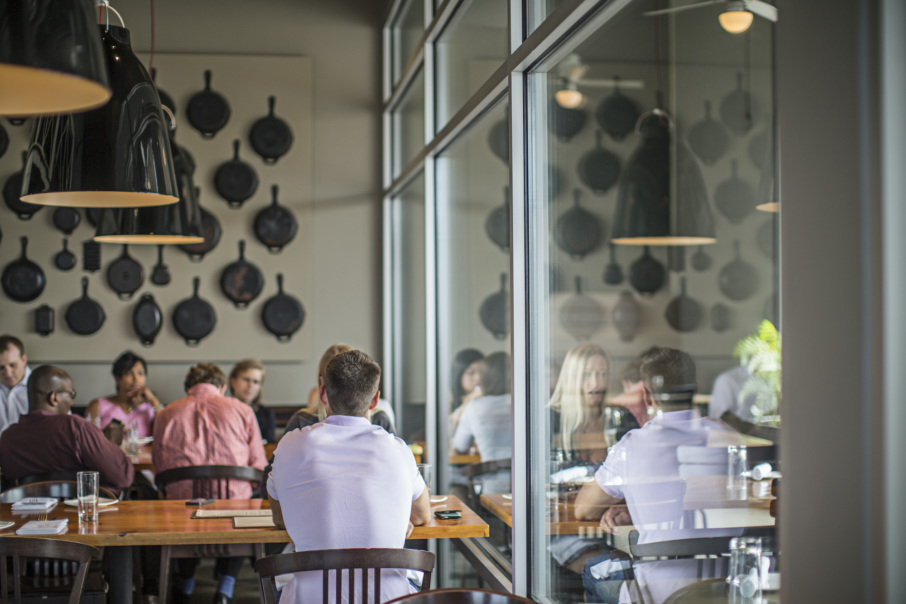
Why is it so important to you to speak out about food service industry issues?
I did go through working for toxic chefs, getting harassed and getting underpaid, under-appreciated, seeing people getting screamed at or fired for the way they look. And after seeing that, I knew that once I did get in a position where I could be vocal, that I never wanted to be that chef. I want to push people to not be like that and stand up for social justice, because you see these companies doing diversity training.
It’s like, why are we training? It’s not hard to have a diverse staff. Especially in Atlanta. So after gaining that support from the hotel, I realized, okay, now I can step out of this, work for something smaller and be more vocal, because I have the platform. So if I don’t use my platform, it’s not fair to everybody else who is afraid to speak up. And I think now there’s more eyes on our industry as far as treating everybody the same, speaking out, giving back. I think we’re in a business of hospitality, so if we’re not following hospitality outside the restaurant, what are we really doing? We’re just catering to these people who are spending $500 a night, but what about everybody else?
Tell me about Cafe Claudia.
I did Cafe Claudia originally at Hotel Clermont as a way to bring in more revenue for the hotel during COVID. They offered me a commission but I turned it down and I exchanged it for being able to bring in a chef to do pop-ups and not charging them a fee to use the kitchen or to use our credit card transactions and just writing them a check. I focused on minorities and women, which is an issue in our industry as far as chefs and owners that are mostly white male-dominated.
So now leaving Hotel Clermont, I’m trying to do it once a month and I’ll probably do a pre-order for Mother’s Day as well. But I’m basically trying to partner with BIPOC chefs, or women, or just anybody that needs support and using my platform to shine on them, and teaming up with different organizations.
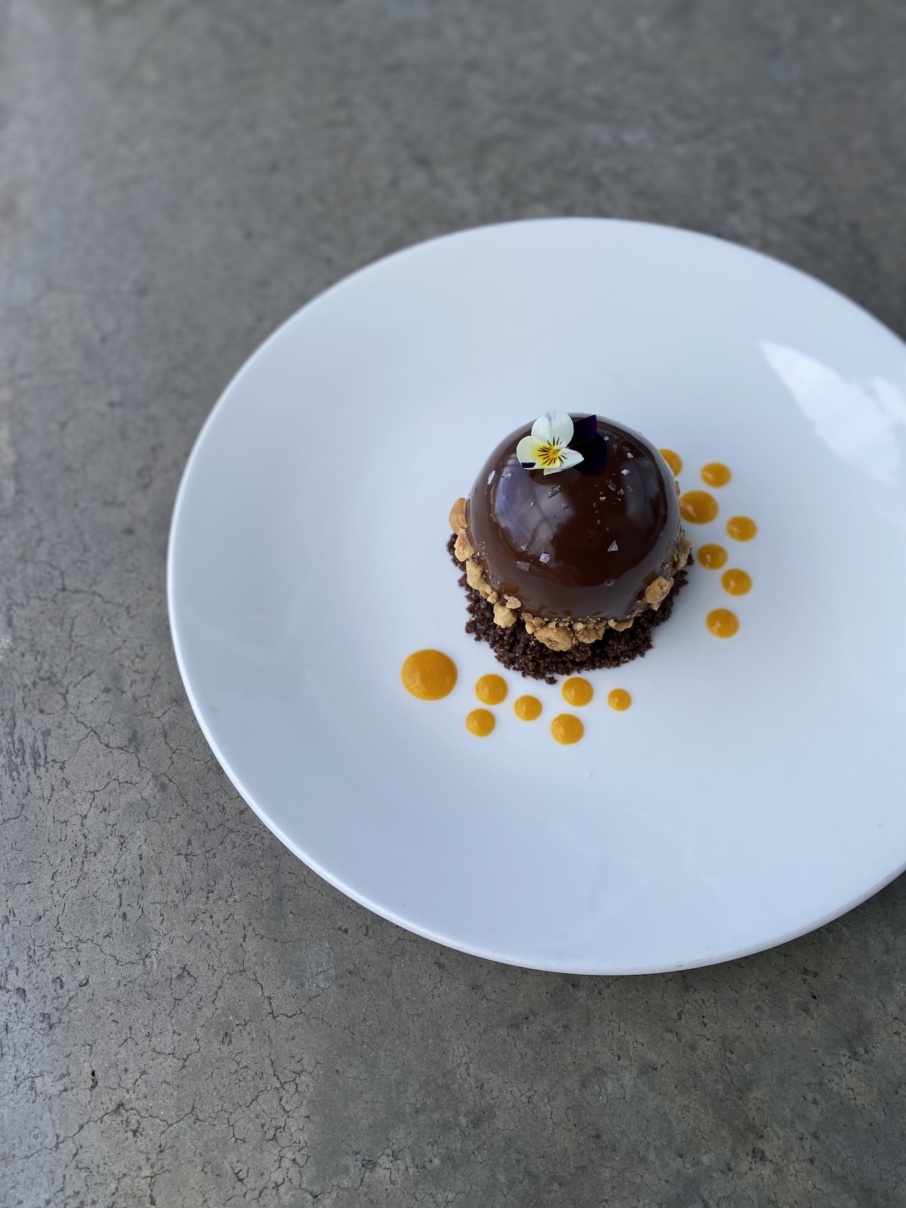
How have you made time for self-care during all of this?
Well, that’s another reason I decided not to move to Charleston. I think opening Tiny Lou’s was probably the hardest three months of my life. I wasn’t mentally well, and I think moving to Charleston with no family or friends, and just working my ass off again, to make a name for myself in a new city, I thought wasn’t the best idea. Which is why I’ve been looking for restaurants that won’t kill me as far as working 80 hours. So I am taking two days off, which is very important to Steven and Neal. So yeah, my two days off, I am just lazy and I eat a bunch of food. I had a personal trainer since the summer that helped with my mental health. So I train twice a week. I think it helps me stay positive.
What do you eat on your days off?
I’ve been going to pop-ups. I want to go support other chefs. So I like going to pop-ups or Buford Highway. I like food-hopping. When it comes to pop-ups, Estella’s Cocina is the best thing I’ve ever had. I think I ate like five quesadillas. But I think she’s at 8Arm on certain Sundays. I think it’s the second Sunday. It could be wrong. I like hers. I’m trying to think where else I’ve been enjoying.
I love El Tesoro. I’m addicted. And I eat a lot of tacos.
You’ve already achieved so much. What is your long-term goal?
I think eventually in a couple of years, I do want to open my own thing. And I think I have finally decided it would be a cafe, but at night. Every once in a while it’ll be a dessert tasting menu that’s similar to The Chocolate Bar that was in Decatur that Aaron opened a while ago. I don’t think Atlanta has that. And I know New York and Chicago do, and I think eventually in five years or so, we’ll be at the place where there’s a demand for it. But I do love doing the cafe items, but I also still have a love for doing plated desserts, and creating that experience. So I think that’s my long-term goal. And also still pushing for change in our industry, and giving back as much as I can.

